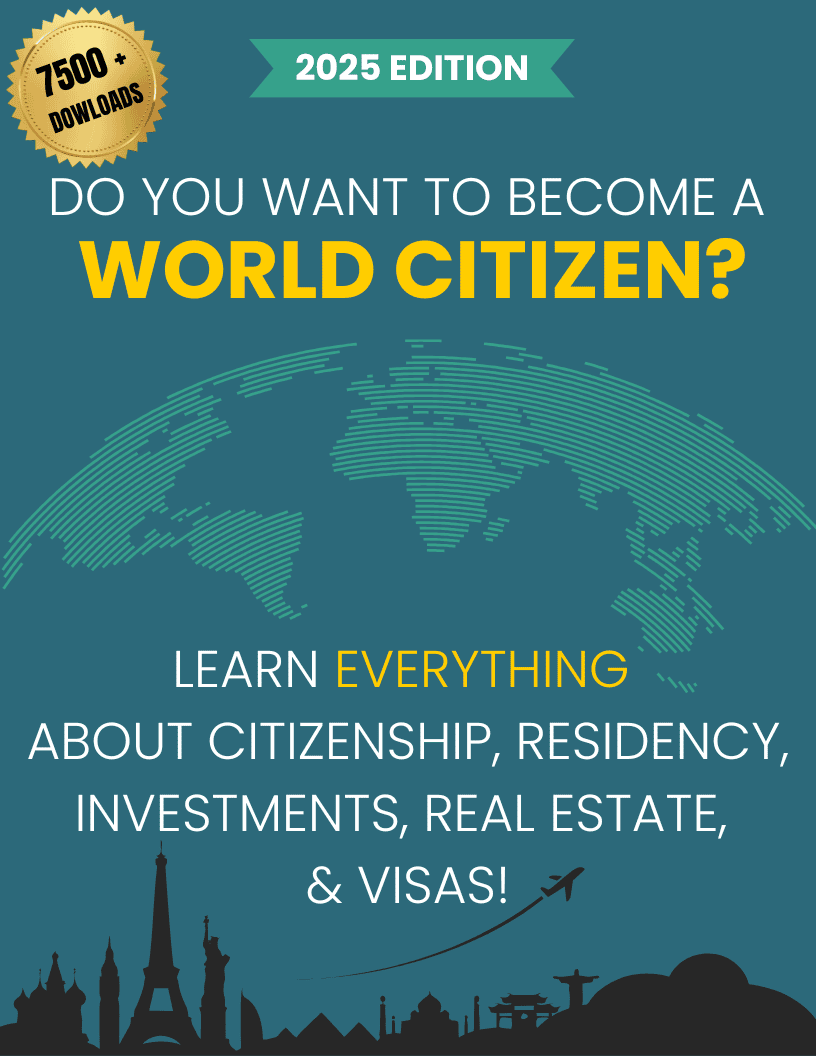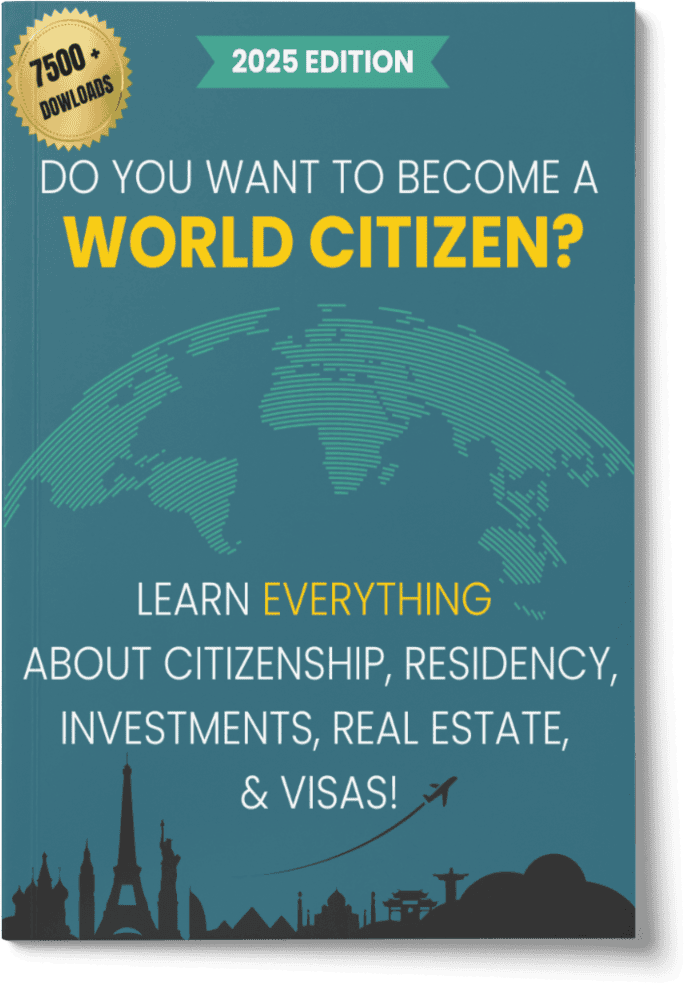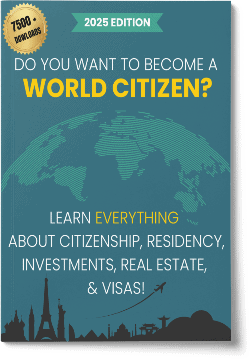Citizenship Through Ancestry
Boost Your Freedom Without Compromise.
- Who offers the CHEAPEST program available.
- Who offers the BEST program available.
- What you need to qualify?

In This Article, You Will Discover:
- Claiming citizenship through ancestry typically involves proving a direct bloodline to a citizen of the country, which usually starts with gathering historical and legal documents like birth certificates and marriage licenses of ancestors.
- Necessary documents often include your birth certificat it, citizenship through ancestry, allowing individuals with ancestors from these nations to apply for citizenship.
- The process can vary widely, taking anywhere from a few months to several years, depending on the country's specific requirements and bureaucratic processing times.
- It can be denied for reasons such as incomplete documentation, failure to prove a direct lineage, or not meeting the country's legal residency or character requirements.
- Who offers the CHEAPEST program available.
- Who offers the BEST program available.
- What you need to qualify?
 Free Consultation
Free Consultation Easy to Use
Easy to Use 100% Safe & Secure
100% Safe & Secure
For many, the desire to connect with their heritage extends beyond casual genealogy research.
Citizenship through ancestry, also known as citizenship by descent or jus sanguinis, offers a powerful pathway to claiming citizenship in a country based on the citizenship of one's parents, grandparents, or even more distant ancestors.
This article explores the concept of citizenship through ancestry, outlining the various pathways, eligibility requirements, application processes, and benefits of reclaiming your heritage through citizenship.
Understanding Citizenship Through Ancestry: Jus Sanguinis
Citizenship through ancestry is based on the legal principle of jus sanguinis, meaning "right of blood."
This principle contrasts with jus soli, or "right of soil," which grants citizenship based on place of birth.
Generational Transmission: Inheriting Citizenship
Many countries allow for the transmission of citizenship across generations, meaning individuals can inherit citizenship from their parents, grandparents, or even further back in their lineage, depending on the specific laws of the country.
Unbroken Lineage: Tracing Your Family Tree
Establishing an unbroken lineage of citizenship is crucial for claiming citizenship through ancestry.
This involves meticulously documenting the citizenship status of each ancestor in the chain, connecting them to the applicant.
Dual Citizenship: Maintaining Multiple Nationalities
Citizenship through ancestry often allows for dual citizenship, meaning individuals can hold citizenship in multiple countries simultaneously, enjoying the benefits and privileges associated with each nationality.
Exploring Different Pathways: Variations in Ancestry Laws
Each country has its own specific laws and regulations governing citizenship through ancestry.
Understanding these variations is essential for determining eligibility and pursuing the appropriate pathway.
Italy: Generational Transmission with No Limits
Italy permits citizenship by descent through any number of generations, as long as an unbroken lineage of Italian citizenship can be demonstrated.
Ireland: Grandparent-Level Descent
Ireland allows for citizenship by descent from a grandparent born in Ireland, even if the applicant's parents were not Irish citizens.
Germany: Parental Descent with Restrictions
Germany generally grants citizenship by descent from a German parent.
However, restrictions may apply depending on the circumstances of the parent's birth and citizenship acquisition.
Poland: Parental and Grandparental Descent
Poland offers citizenship by descent from either a Polish parent or grandparent, subject to specific requirements and documentation.
Other Countries: Diverse Regulations
Numerous other countries offer citizenship through ancestry, each with its own unique set of regulations and procedures.
Researching the specific laws of the country in question is crucial.
The Application Process: Gathering Evidence and Documentation
The application process for citizenship through ancestry typically involves gathering extensive documentation and evidence to support the claim of descent.
Birth Certificates: Essential Documents
Birth certificates of the applicant, their parents, grandparents, and other relevant ancestors are crucial for establishing the familial lineage.
Marriage Certificates: Documenting Marital Status
Marriage certificates of ancestors are often required to demonstrate the legitimacy of the lineage and the transfer of citizenship through marriage.
Naturalization Documents: Proof of Citizenship Acquisition
If any ancestor acquired citizenship through naturalization, the relevant naturalization documents must be provided.
Translation and Legalization: Ensuring Document Validity
Documents issued in foreign languages typically require translation and legalization, ensuring their validity in the destination country.
Benefits of Citizenship Through Ancestry: Reclaiming Your Heritage
Obtaining citizenship through ancestry offers a range of benefits, both tangible and intangible.
Dual Citizenship: Expanding Opportunities
Dual citizenship can provide access to a wider range of opportunities, including the right to live, work, and study in multiple countries.
Visa-Free Travel: Enhanced Mobility
Citizenship often grants visa-free travel to numerous countries, simplifying international travel and expanding personal and business horizons.
Cultural Connection: Strengthening Ties to Heritage
Reclaiming citizenship through ancestry can strengthen ties to one's heritage, providing a deeper sense of belonging and connection to family history.
Common Questions
How far back can I trace my ancestry for citizenship?
How long does the application process typically take?
What if I don't have all the required documents?
Do I need to renounce my current citizenship to obtain citizenship through ancestry?
What are the costs associated with applying for citizenship through ancestry?
In Conclusion
Citizenship through ancestry offers a powerful pathway to reclaiming heritage and connecting with one's roots.
While the process can be complex and time-consuming, the rewards of obtaining citizenship and the associated benefits can be significant.
Thorough research, meticulous documentation, and professional guidance can greatly enhance the chances of a successful application.
- Who offers the CHEAPEST program available.
- Who offers the BEST program available.
- What you need to qualify?
 Free Consultation
Free Consultation Easy to Use
Easy to Use 100% Safe & Secure
100% Safe & Secure







